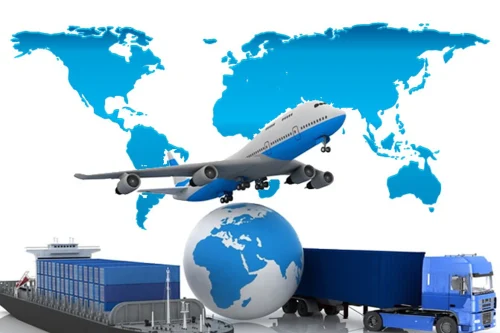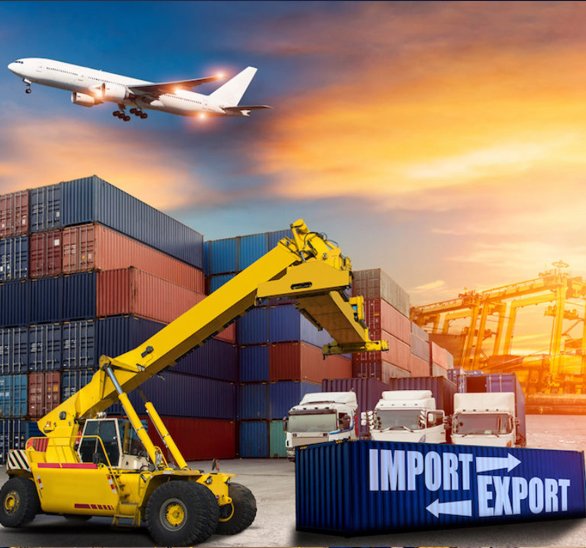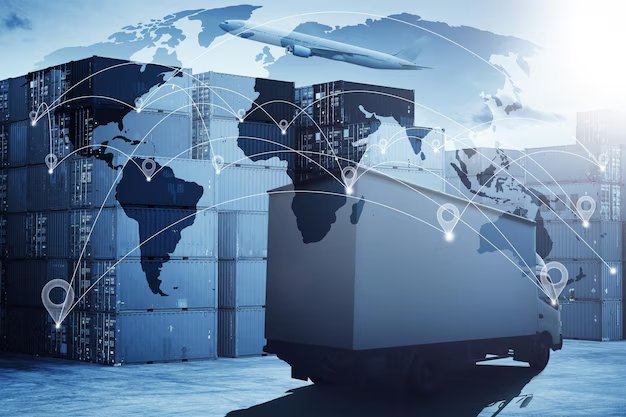Our Resources

Import and Export Guides
Guidance for Importers and Exporters
We have created some guides designed to assist importers and exporters with varying levels of experience. If your company is already involved in international trade or is looking to trade abroad, our guides will help you understand the complexities of importing and exporting.
We will help you ensure that your business is import- and export-compliant and well-positioned for commercial success within overseas markets. Whether you’re seeking import or export information or developing your global strategy, our procedure guides will ensure you can make decisions with the necessary facts at hand.
Border Target Operating Model - Final Plans
The Border Target Operating Model contains the UK government’s final plans for a new approach to importing goods into Great Britain that will be progressively introduced from the end of January 2024.
The government has stated that the Border Target Operating Model sets out a new approach to security controls (applying to all imports) and sanitary and phytosanitary controls (applying to imports of live animals, animal products, plants, and plant products) at the border. It outlines how controls will be simplified and digitised, along with their ambition for the UK’s new Single Trade Window.
BTOM Implementation Timelines
- 31 January 2024
- 30 April 2024
- 31 October 2024

Sourcing and Importing Products
14 Steps for Sourcing and Importing Products
If your company plans to import goods from outside the UK, we can help you understand if your company is ready to import. We help our clients with the various steps of the import process and guide them through the challenges of dealing with overseas suppliers.
These are the important steps that your company should follow when importing products from overseas suppliers into the UK.
- Identify the products you want to import.
- Identify the country or countries to source products from.
- Find overseas suppliers and source products.
- Ensure that the product and the supplier fully meet the trade compliance requirements for supplying goods into the UK.
- Agree with the supplier the relevant Incoterms 2020 rule for shipments to the UK.
- Obtain an EORI number that starts with GB to import goods into England, Wales, or Scotland.
- Agree that the Export Customs Clearance should either be performed by the supplier or their appointed agent.
- Agree the correct tariff/commodity code classification for the products being shipped.
- Agree and document the required documentation for shipping and customs clearance.
- Agree on the international shipping process flow with the supplier, ensuring it is in accordance with the agreed Incoterms rule.
- Ensure the contracted Freight Forwarder is aware of the shipment or shipments.
- You will need to appoint a Customs Clearance Agent if your company is the importer of record.
- Agree on UK Warehouse Destination delivery and handling.
- You will need to maintain records of your imports for HM Revenue and Customs audits.

Global Shipping Services
- Sea Freight
- Airfreight
- Road Freight
- Multimodal Solutions
- Management of Global Shipping Services
- Outsourcing of Global Shipping
- Preparation of Global Shipping Documentation
- Consolidation and Deconsolidation
- Customs Classifying of Goods
- Customs Clearance Compliance
- Declaring Appropriate Duties and Taxes
- Warehousing and Storage Solutions
- Cargo Insurance Guidance and Advice
- Consultancy Services
What is a Freight Forwarder?
Freight forwarders are intermediaries who act on behalf of importers and exporters to move goods through the global supply chain. Freight forwarders do not carry out the shipments themselves; they offer different transport modes such as airfreight, sea/ocean freight, road transport, and rail freight. Freight forwarders normally arrange commercial transportation for the cargo and assume responsibility for consignments until they reach their destinations, depending on the Incoterms 2020.
Customs Formalities
Most international freight forwarders have additional expertise in preparing and processing customs documentation. However, customs authorities state that the company importing or exporting is responsible for ensuring that the freight forwarder has been given clear and accurate information. Customs authorities also state that the company importing or exporting must check the accuracy of customs clearance declarations made on their behalf. We work with our clients to ensure that accurate information is provided to the freight forwarder and that customs formalities are completed correctly.


Third-Party Global Shipping Services
Global shipping will let your business source new products from overseas markets and develop new business opportunities with international customers. Global shipping is the process of importing and exporting products between different countries by sea, air, road, or rail. Organizing and managing global shipping can be complex, especially if your company is new to international trade.
Our extensive third-party global shipping services provide intuitive, transparent, and painless solutions for your global shipping requirements. Deciding on the best method to ship your products is an important commercial decision. We offer a range of different global shipping services that cover air, sea, and road, and these can be tailored to meet your business needs.
Read more about Customs Special Procedures >>
Duty Suspensions and Autonomous Tariff Quotas The goal of customs duties is to safeguard domestic industry in addition to generating income. Many businesses are not aware that they can apply for tariff suspensions to have customs duties on imports of components and raw materials that are insufficiently available in the UK removed. Companies may request and advocate for additional tariff suspensions, which, if approved, will eliminate taxes on such imports for a minimum of two years.
The purpose of these tariff suspensions is to keep businesses in the UK competitive in the international market. They achieve this by suspending import tariffs under the UK Global Tariff, either fully or partially, on many items, usually those that are inputs into domestic industrial processes.


